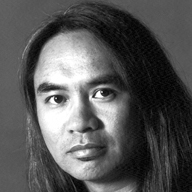 Today we are pleased to feature author Laura Esther Wolfson as our Authors Talk series contributor. In “Notes for My Swedish Translator,” Laura discusses her piece, “For Single Mothers Working as Train Conductors,” published in issue 14, with a focus on her communications with her Swedish translator. “For Single Mothers” is being translated for an anthology of literary travel writing coming out from Sandnejlika Förlag, a publisher based in Stockholm.
Today we are pleased to feature author Laura Esther Wolfson as our Authors Talk series contributor. In “Notes for My Swedish Translator,” Laura discusses her piece, “For Single Mothers Working as Train Conductors,” published in issue 14, with a focus on her communications with her Swedish translator. “For Single Mothers” is being translated for an anthology of literary travel writing coming out from Sandnejlika Förlag, a publisher based in Stockholm.
Herself a translator (though not of Swedish), and therefore familiar with the very close reading that translation requires, Laura notes some of the conscious literary choices she made in this piece, as well as her request that the translator maintain these same devices in the Swedish version, to the extent possible. Laura depicts the exchange as beneficial to both author and translator.
You can read Laura’s essay in Superstition Review Issue 14. You can also visit her website.
(Laura apologizes for the scratchy, breathy vocal quality of this podcast. It is caused by a chronic lung disease.)








